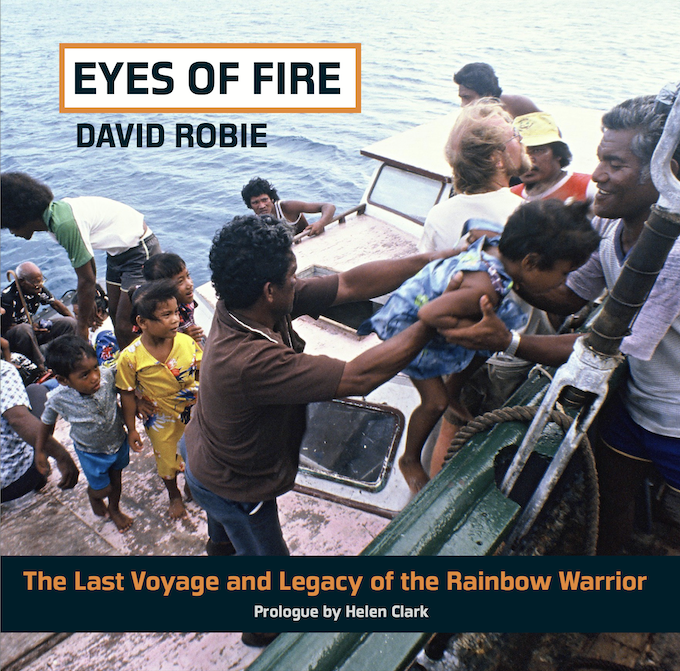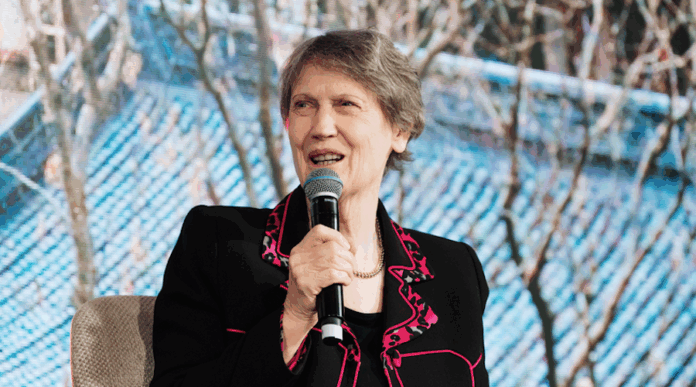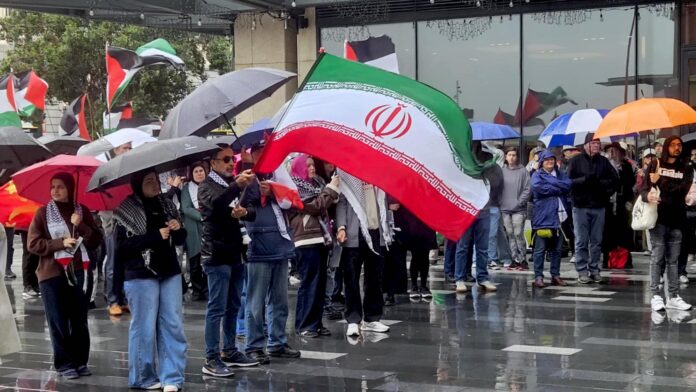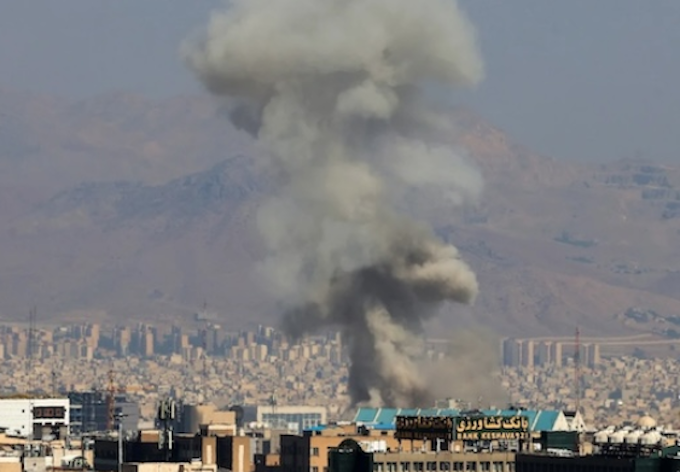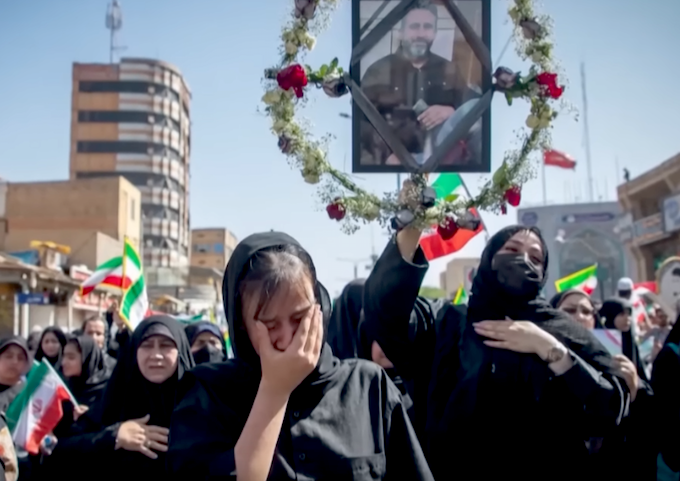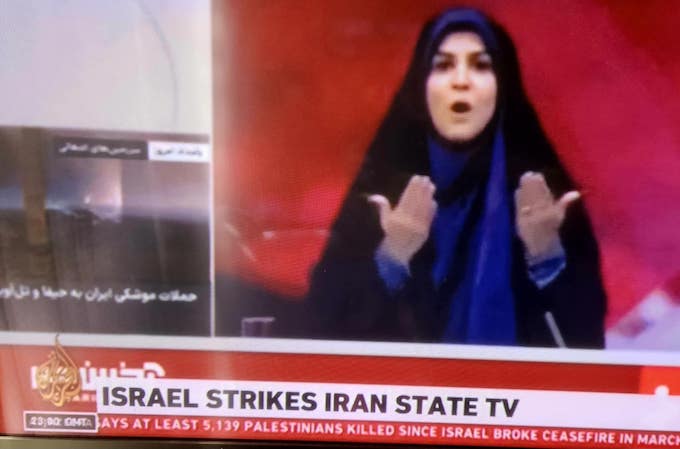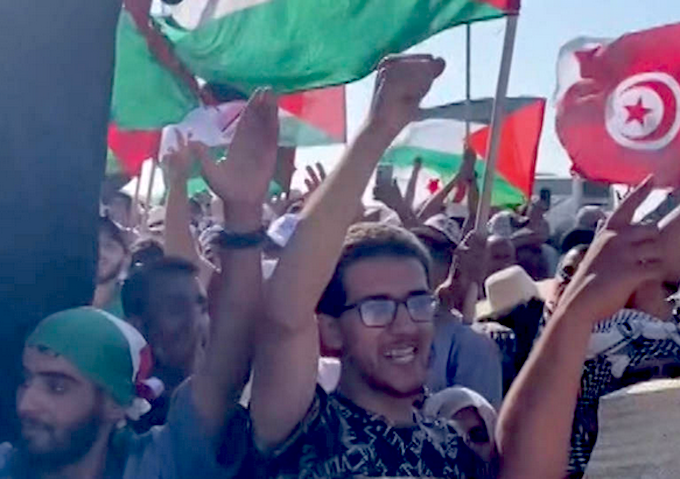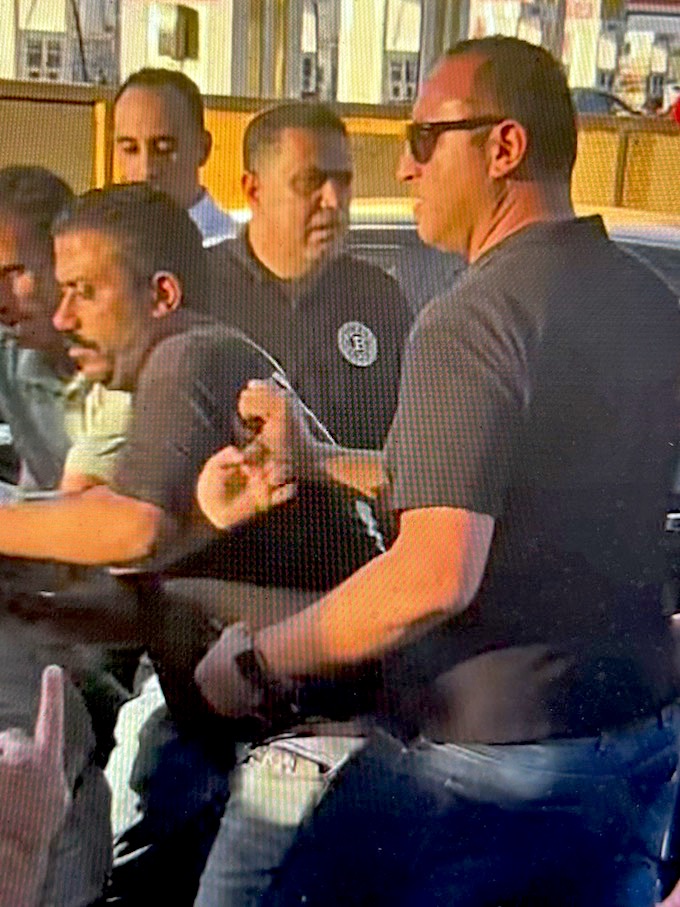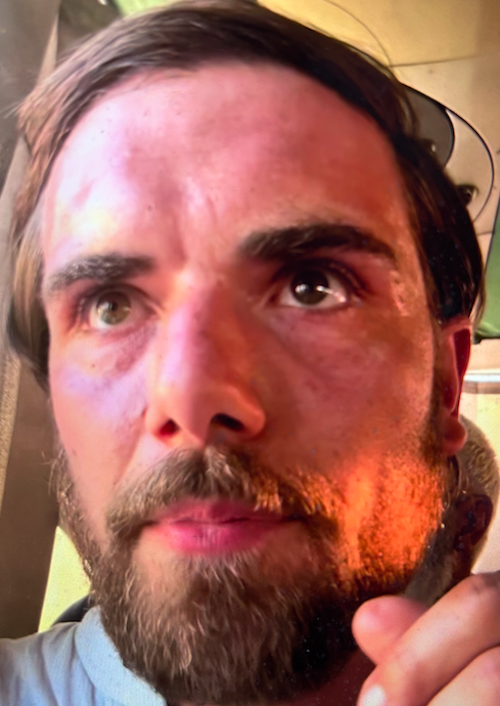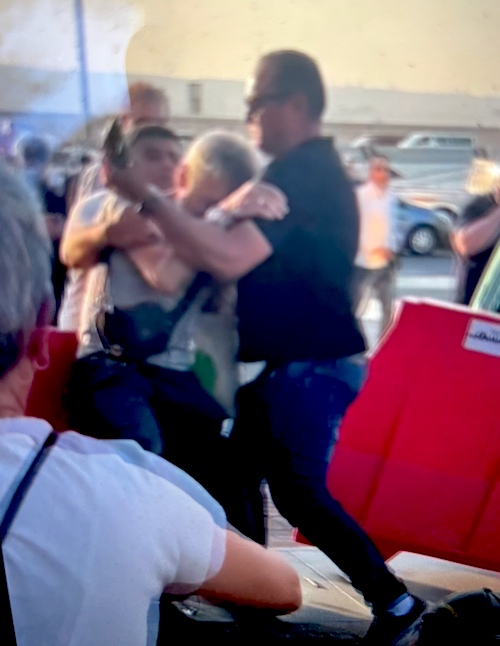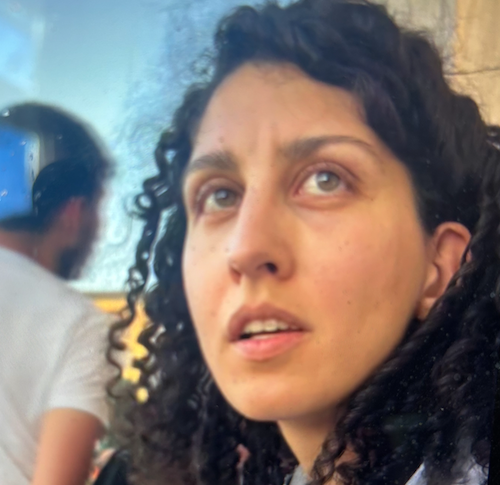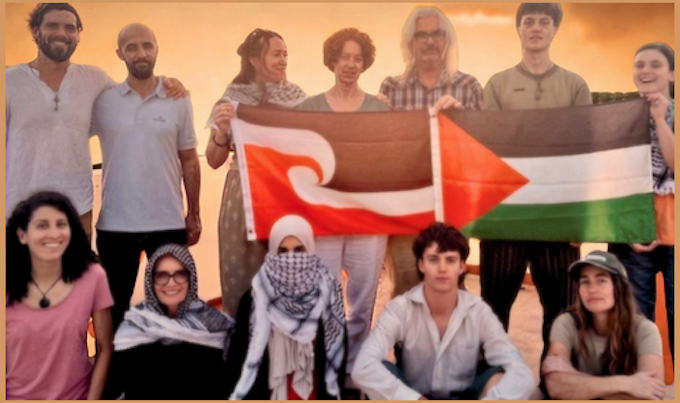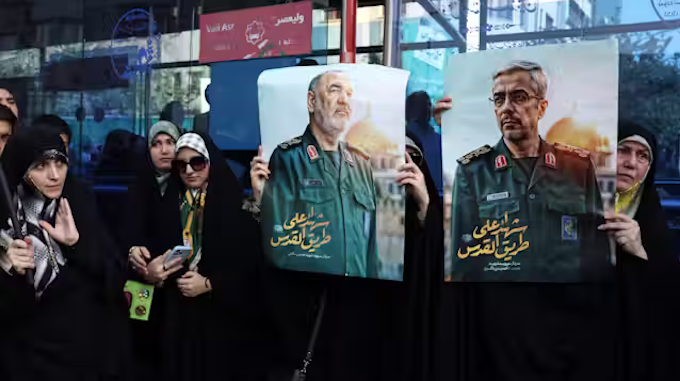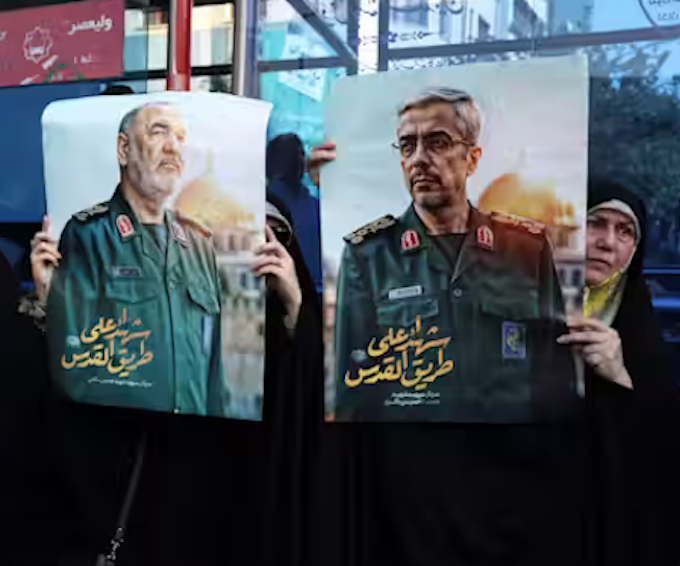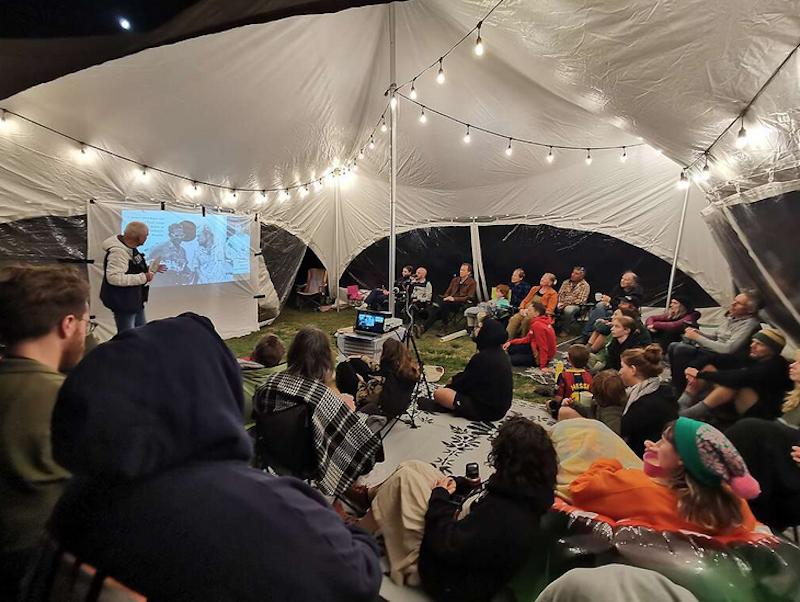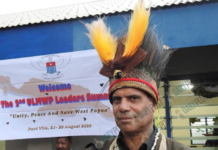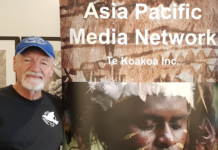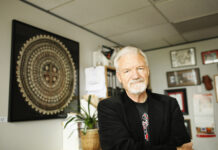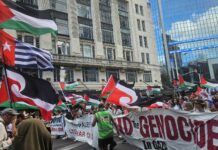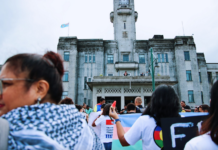Twenty years ago, the US warned prematurely of the “birth pangs” of a new Middle East. Now they have arrived in full force — and they will not end in Iran.
By Jonathan Cook in Middle East Eye
Western politicians and media are tying themselves up in knots trying to spin the impossible: presenting Israel’s unmistakable war of aggression against Iran as some kind of “defensive” move.
This time there was no rationalising pretext, as there was for Israel to inflict a genocide in Gaza following Hamas’ one-day attack on 7 October 2023.
There was not a serious attempt beforehand to concoct a bogus doomsday scenario – as there was in the months leading up to the US and UK’s illegal invasion of Iraq in 2003.
Then we were lied to about Baghdad having “weapons of mass destruction” that could be launched at Europe in 45 minutes.
Rather, Iran was deep in negotiations with the United States on its nuclear enrichment programme when Israel launched its unprovoked attack last Friday.
The West has happily regurgitated claims by Israeli Prime Minister Benjamin Netanyahu that Israel was forced to act because Iran was on the cusp of producing a nuclear bomb – an entirely evidence-free claim he has been making since 1992.
None of his dire warnings has ever been borne out by events.
Hope of agreement
In fact, Israel struck Iran shortly after President Donald Trump had expressed hope of reaching a nuclear agreement with Tehran, and two days before the two countries’ negotiators were due to meet again.
In late March Trump’s head of national intelligence, Tulsi Gabbard, had expressly statedas part of the US intelligence community’s annual assessment: “Iran is not building a nuclear weapon and Supreme Leader [Ali] Khameini has not authorised a nuclear weapons programme he suspended in 2003.”
This week four sources said to be familiar with that assessment told CNN that Iran was not trying to build a bomb but, if it changed tack, it would be “up to three years away from being able to produce and deliver one [a nuclear warhead] to a target of its choosing”.
Nonetheless, by Tuesday this week Trump appeared to be readying to join Israel’s attack. He publicly rebuked his own intelligence chief’s verdict, sent US warplanes to the Middle East via the UK and Spain, demanded Iran’s “unconditional surrender”, and made barely veiled threats to kill Khameini.
Israel’s engineering of a pretext to attack Iran – defined by the Nuremberg tribunal in 1945 as the “supreme international crime” – has been many years in the making.
The current talks between the US and Iran were only needed because, under intense Israeli pressure during his first term as president, Trump tore up an existing agreement with Tehran.
That deal, negotiated by his predecessor, Barack Obama, had been intended to quieten Israel’s relentless calls for a strike on Iran. It tightly limited Tehran’s enrichment of uranium to far below the level where it could “break out” from its civilian energy programme to build a bomb.
Israel’s own arsenal
Israel, by contrast, has been allowed to maintain a nuclear arsenal of at least 100 warheads, while refusing – unlike Iran – to sign the Nuclear Non-Proliferation Treaty and – again unlike Iran – denying access to monitors from the International Atomic Energy Agency.
The West’s collusion in the pretence that Israel’s nuclear weapons are secret – a policy formally known in Israel as “ambiguity” – has been necessary only because the US is not allowed to provide military aid to a state with undeclared nuclear weapons.
Israel is by far the largest recipient of such aid.
No one – apart from incorrigible racists – believes Iran would take the suicidal step of firing a nuclear missile at Israel, even if it had one. That is not the real grounds for Israeli or US concern.
Rather, the double standards are enforced to keep Israel as the only nuclear-armed state in the Middle East so that it can project unrestrained military power across an oil-rich region the West is determined to control.
Israel’s bomb has left it untouchable and unaccountable, and ready to intimidate its neighbours with the “Samson option” – the threat that Israel will use its nuclear arsenal rather than risk an existential threat.
Israel’s national security minister, Itamar Ben Gvir, appeared to imply just such a scenario against Iran this week in a reported comment: “There will be other difficult days ahead, but always remember Hiroshima and Nagasaki.”
Settler-colonial state
Bear in mind that Israeli governments count as “existential” any threat to Israel’s current status as a settler-colonial state, one occupying and forcibly uprooting the Palestinian people from their homeland.
Israel’s nuclear weapons ensure it can do as it pleases in the region – including commit genocide in Gaza – without significant fear of reprisals.
The claim that Israel is “defending itself” in attacking Iran – promoted by France, Germany, Britain, the European Union, the G7 and the US – should be understood as a further assault on the foundational principles of international law.
The assertion is premised on the idea that Israel’s attack was “pre-emptive” – potentially justified if Israel could show there was an imminent, credible and severe threat of an attack or invasion by Iran that could not be averted by other means.
And yet, even assuming there is evidence to support Israel’s claim it was in imminent danger – there isn’t – the very fact that Iran was in the midst of talks with the US about its nuclear programme voided that justification.
Rather, Israel’s contention that Iran posed a threat at some point in the future that needed to be neutralised counts as a “preventive” war – and is indisputably illegal under international law.
Note the striking contrast with the West’s reaction to Russia’s so-called “unprovoked” attack on Ukraine just three years ago.
Only too clear
Western capitals and their media were only too clear then that Moscow’s actions were unconscionable – and that severe economic sanctions on Russia, and military support for Ukraine, were the only possible responses.
So much so that early efforts to negotiate a ceasefire deal between Moscow and Kyiv, premised on a Russian withdrawal, were stymied by Prime Minister Boris Johnson, presumably on Washington’s orders. Ukraine was instructed to fight on.
Israel’s attack on Iran is even more flagrantly in violation of international law.
Netanyahu, who is already a fugitive from the International Criminal Court, which wants to try him for committing crimes against humanity in Gaza by starving the population there, is now guilty of the “supreme international crime” too.
Not that one would know any of this from listening to western politicians or the billionaire-owned media.
There, the narrative is once again of a plucky Israel, forced to act unilaterally; of Israel facing down an existential threat; of Israel being menaced by barbaric terrorists; of the unique suffering – and humanity – of Israel’s population; of Netanyahu as a strong leader rather than an out-and-out war criminal.
It is the same, well-worn script, trotted out on every occasion, whatever the facts or circumstances. Which is clue enough that western audiences are not being informed; they are being subjected to yet more war propaganda.
Israel’s pretexts for war
But Israel’s pretexts for its war of aggression are a moving target – hard to grapple with because they keep changing.
If Netanyahu started by touting an implausible claim that Iran’s nuclear programme was an imminent threat, he soon shifted to arguing that Israel’s war of aggression was also justified to remove a supposed threat from Iran’s ballistic missile programme.
In the ultimate example of chutzpah, Israel cited as its evidence the fact that it was being hit by Iranian missiles – missiles fired by Tehran in direct response to Israel’s rain of missiles on Iran.
Israel’s protestations at the rising death toll among Israeli civilians overlooked two inconvenient facts that should have underscored Israel’s hypocrisy, were the western media not working so hard to obscure it.
First, Israel has turned its own civilian population into human shields by placing key military installations – such as its spy agency and its defence ministry – in the centre of densely populated Tel Aviv, as well as firing its interception rockets from inside the city.
Recall that Israel has blamed Hamas for the deaths of tens of thousands of Palestinians in Gaza over the past 20 months based on the largely unevidenced claim that its fighters have been hiding among the population. Now that same argument can, and should, be turned against Israel.
And second, Israel is all too obviously itself hitting residential areas in Iran – just as, of course, it did earlier by destroying almost all of Gaza’s buildings, including homes, hospitals, schools, universities and bakeries.
‘Evacuate immediately’ calls
Both Netanyahu and Trump have called on Iranians to “evacuate immediately” the city of Tehran — something impossible for most of its 10 million inhabitants to do in the time allowed.
But their demand raises too the question of why, if Israel is trying to stop the development of an Iranian nuclear warhead, it is focusing so many of its attacks on residential areas of Iran’s capital.
More generally, Israel’s argument that Tehran must be stripped of its ballistic missiles assumes that only Israel — and those allied with it — are allowed any kind of military deterrence capability.
It seems not only is Iran not allowed a nuclear arsenal as a counter-weight to Israel’s nukes, but it is not even allowed to strike back when Israel decides to launch its US-supplied missiles at Tehran.
What Israel is effectively demanding is that Iran be turned into a larger equivalent of the Palestinian Authority — a compliant, lightly armed regime completely under Israel’s thumb.
Which gets to the heart of what Israel’s current attack on Iran is really designed to achieve.
It is about instituting regime change in Tehran.
Again, the Western media are assisting with this new narrative.
Extraordinary TV politics
Extraordinarily, TV politics shows such as the BBC’s Sunday with Laura Kuenssberg invited on as a guest Reza Pahlavi, the son of the Iranian shah ousted by the ayatollahs in 1979 to create an Islamic republic. He used the slot to call on Iranians to “rise up” against their leaders.
The framing — an entirely Israeli confected one — is that Iranian society is desperate to throw off the yoke of Islamic dictatorship and return to the halcyon days of monarchical rule under the Pahlavis.
It is a beyond-absurd analysis of modern Iran.
Asking Pahlavi to discuss how Iran might be freed from clerical rule is the equivalent of inviting Josef Stalin’s grandson into the studio to discuss how he plans to lead a pro-democracy movement in Russia.
In fact, the much-feared Pahlavis were only in power in 1979 — and in a position to be overthrown — because Israel, Britain and the US meddled deeply in Iran to keep them in place for so long.
When Iranians elected the secular reformist Mohammed Mossadegh, a lawyer and intellectual, as prime minister in 1951, Britain and the US worked tirelessly to topple him. His chief crime was that he took back control of Iran’s oil industry — and its profits — from the UK.
Within two years, Mossadegh was overthrown in US-led Operation Ajax, and the Shah re-installed as dictator. Israel was drafted in to train Iran’s Savak secret police in torture techniques to use on Iranian dissidents, learnt from torturing Palestinians.
Crushed democratic reform
Predictably, the West’s crushing of all efforts to democratically reform Iran opened up a space for resistance to the Shah that was quickly occupied by Islamist parties instead.
In 1979, these revolutionary forces overthrew the western-backed dictator Mohammad Reza Pahlavi. Ayatollah Ruhollah Khomeini returned from exile in Paris to found the Islamic Republic of Iran.
Notably Khomeini’s successor as supreme leader, Ali Khameini, issued a religious edict in 2003 banning Iran from developing a nuclear weapon. He considered it a violation of Islamic law.
Which is why Iran has been so reluctant to develop a bomb, despite Israel’s endless provocations and claims to the contrary.
What Iran has done instead is two things that are the real trigger for Israel’s war of aggression.
First, it developed the best alternative military strategy it could muster to protect itself from Israeli and western belligerence — a belligerence related to Iran’s refusal to serve as a client of the West, as the Shah once had, rather than the issue of human rights under clerical rule.
Iran’s leaders understood they were a target. Iran has huge reserves of oil and gas, but unlike the neighbouring Gulf regimes it is not a puppet of the West. It can also shut down the Strait of Hormuz, the main gateway for the flow of oil and gas to the West and Asia.
Religious communities
And as a Shia-led state (in contrast to the Sunni Islam that dominates much of the rest of the Middle East), Iran has a series of co-religionist communities across the region – in Lebanon, Syria, Iraq, Yemen and elsewhere – with which it has developed strong ties.
For example, with Iran’s help, Hezbollah in Lebanon built up a large stockpile of rockets and missiles close to Israel’s border. That was supposed to deter Israel from trying to attack and occupy Lebanon again, as it did for two decades from the early 1980s through to 2000.
But it also meant that any longer-range attack by Israel on Iran would prove risky, exposing it to a barrage of missiles on its northern border.
Ideologues in Washington, known as the neoconservatives, who are keenly supportive of Israeli hegemony in the Middle East, deeply opposed what came to be seen as “the axis of resistance”.
The neocons, seeking a way to crush Iran, quickly exploited the 9-11 attacks on the Twin Towers in New York in 2001 as an opportunity to erode Iranian power.
General Wesley Clark was told at the Pentagon in the days after the attack that the US had come up with a plan to “take out seven countries in five years”.
Targeted ‘Shia crescent’
Notably, even though most of the hijackers who crashed planes into the Twin Towers were from Saudi Arabia, the Pentagon’s list of targets centrally featured members of the so-called “Shia crescent”.
All have been attacked since. As Clark noted, the seventh and final state on that list — the hardest to take on – is Iran.
Israel’s other concern was that Iran and its allies, unlike the Arab regimes, had proved steadfast in their support for the Palestinian people against decades of Israeli occupation and oppression.
Iran’s defiance on the Palestinian cause was underscored during Trump’s first presidency, when Arab states began actively normalising with Israel through the US-brokered Abraham accords, even as the plight of the Palestinians worsened under Israeli rule.
Infuriatingly for Israel, Iran and the late Hezbollah leader Hassan Nasarallah became the main flagbearers of popular support for the Palestinians — among Muslims across the board.
With the Palestinian Authority largely quiescent by the mid-2000s, Iran channelled its assistance to Hamas in besieged Gaza, the main Palestinian group still ready to struggle against Israeli apartheid rule and ethnic cleansing.
The result was a tense stability of sorts, with each side restraining itself in a Middle Eastern version of “mutually assured destruction”. Neither side had an incentive to risk an all-out attack for fear of the severe consequences.
An abrupt end
That model came to an abrupt end on 7 October 2023, when Hamas decided its previous calculations needed reassessing.
With the Palestinians feeling increasingly isolated, choked by Israel’s siege and abandoned by the Arab regimes, Hamas staged a show of force, breaking out for one day from the concentration camp of Gaza.
Israel seized the opportunity to complete two related tasks: destroying the Palestinians as a people once and for all, and with it their ambitions for a state in their homeland; and rolling back the Shia crescent, just as the Pentagon had planned more than 20 years earlier.
Israel started by levelling Gaza — slaughtering and starving its people. Then it moved to destroy Hezbollah’s southern heartlands in Lebanon. And with the collapse of the Syrian regime of Bashar al-Assad, Israel was able to occupy parts of Syria, smash what remained of its military infastructure, and clear a flight path to Iran.
These were the preconditions for launching the current war of aggression on Iran.
Jonathan Cook is a writer, journalist and self-appointed media critic and author of many books about Palestine. Winner of the Martha Gellhorn Special Prize for Journalism. Republished from the author’s blog with permission. This article was first published by Middle East Eye.
